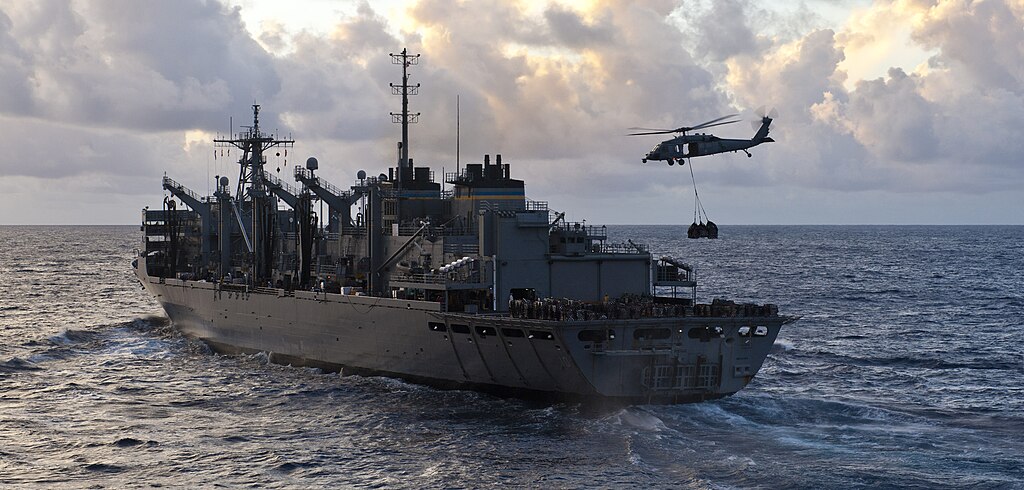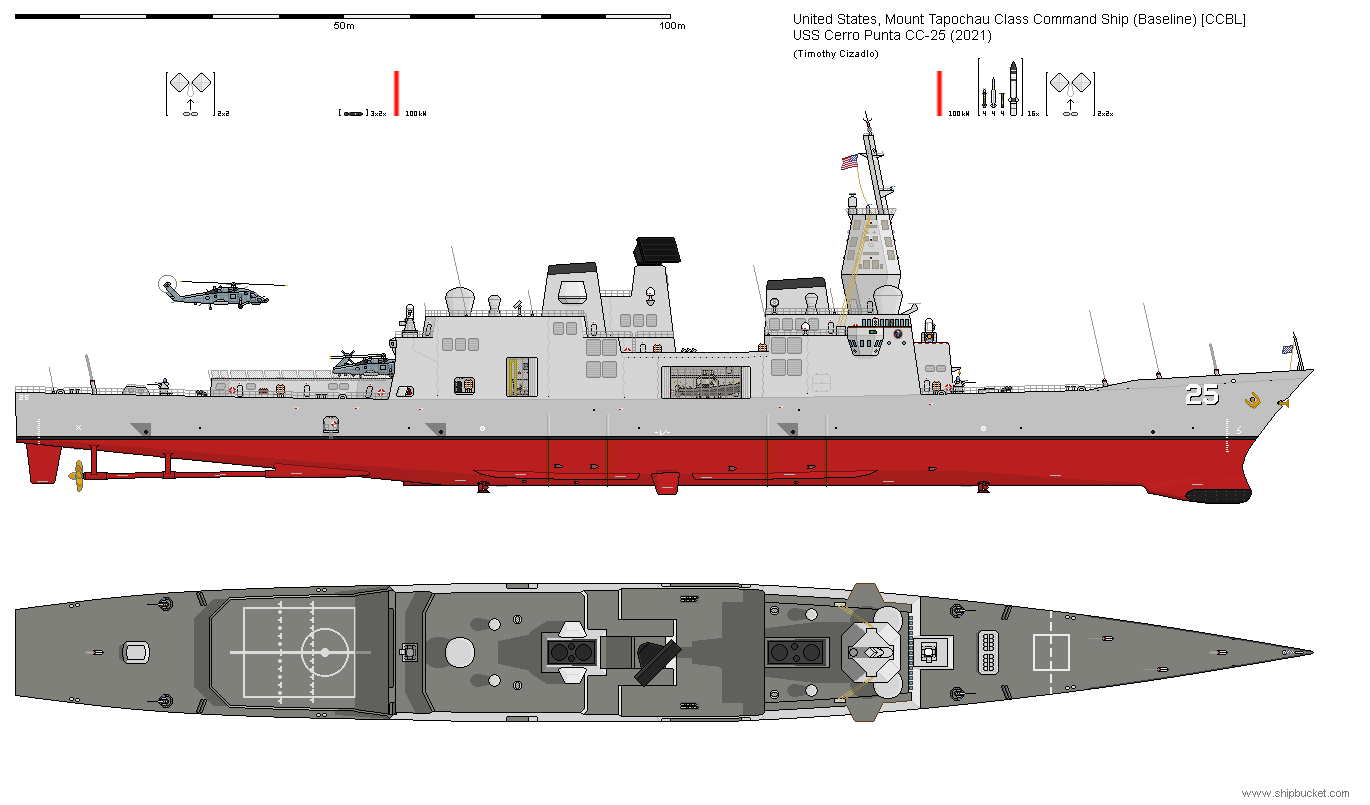
Are you interested in replenishment oilers, ammunition ships, submarine tenders, and the other support vessels which keep the warships of a navy in fighting order at sea? If your answer is yes, this is the challenge for you. Welcome to Shipbucket’s modern fleet auxiliary challenge. Your task, chosen by members of the community, is to draw a fictional example of an auxiliary in service today. It can be an alternate design for a real-life navy, or a ship commissioned in a world of your own creation. The choice is yours! Please read the design requirements and challenge rules before posting a submission. Do note that outlandish and non-serious entries are no longer permitted. If you wish to explore a concept which pushes the limits of the challenge, feel free to ask if it is permissible.
Design Requirements
- Your submission must depict a fictional naval auxiliary.
- The chosen vessel must be shown in active service in 2021, but there is no lower bound on year of commission or construction.
Challenge Rules
- Each participant must submit a single image.
- The image should be a Shipbucket template modified to include the participant’s art. Templates which include a data sheet are allowed.
- One side-view of the participant's ship must be included. One top-view is also permitted, but not required. All other views are prohibited.
- If two views are included, they must depict the same ship, in the same configuration, at the same point in time.
- All art must be in Shipbucket scale and conform to the Shipbucket style guidelines.
- A textual description accompanying each submission is permitted, but not necessary.
- Non-serious entries, or entries substantially deviate from the challenge requirements, are not allowed.
- Off-topic posts will be reported to the relevant authorities.
This challenge will run until the 13th of June, ending at 23:59 UTC-12 (International Date Line West).
A countdown timer can be found at this link.
A poll will be held after this date. This normally occurs within an hour of the deadline. Members of the Shipbucket community will have an opportunity to rate each submission. Please provide honest and meaningful scores for each entry. Responses which grant maximum scores to a select group of entries, and minimum scores to all other entries, will be deleted. Members of the community who manipulate the results in such a fashion may also be subject to a permanent ban. Scores will be allocated in three categories, each with a scale of 1 to 10:
- Drawing Quality - The overall quality of the drawing. One might consider detailing, shading, and accuracy.
- Design Realism - How realistic is the design presented? Any accompanying text may be considered.
- Originality - Does the submission present a new and unique design, or is it a copy of an existing one?
- Suitability - Are the requirements of the challenge satisfied by the design? Does it suit them well?








